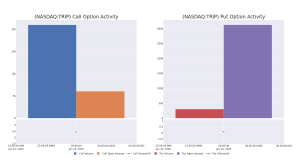The investment community has long looked to Warren Buffett for guidance and clues about what may happen next in the market, and for good reason. The billionaire investor has proven his expertise, driving market-beating gains for Berkshire Hathaway over time. With Buffett at the helm, Berkshire Hathaway has delivered a compounded annual gain of nearly 20% over the past 58 years. That’s compared with a compounded annual increase of a little more than 10% for the S&P 500. Buffett has done this through careful stock picking, knowledge of when to be “greedy” and when to be “fearful” in the market, and commitment to holding onto investments for the long term. All of this has earned him the well-deserved nickname of “the Oracle of Omaha.”
And if we believe in Buffett’s ability to predict what’s next for the market, we should take a close look at his recent moves. They just so happen to represent a warning to Wall Street — and this warning has reached deafening levels. Let’s check out the details and consider what you should do before 2025.
First, let’s consider the moves Buffett has made that stand out. He’s been a net seller of stocks for several quarters. In the third quarter of this year, he built up a record cash level of more than $300 billion, representing 28% of Berkshire Hathaway’s asset value; that’s the highest percentage in more than 30 years. And this year Buffett significantly cut his position in two of his favorite stocks: Apple and Bank of America, with more than a 20% decrease in each in the recent quarter alone.
These stock sales don’t necessarily represent a lack of faith in the underlying companies, though. Buffett himself even suggested, at Berkshire Hathaway’s annual meeting back in May, that he’s been locking in profits on his top positions under the current capital gains tax rate — with the idea that this rate may rise. And Apple and Bank of America remain his No. 1 and No. 3 holdings, respectively. It’s also important to note that Buffett believes in long-term investing and isn’t one to buy and sell according to market cycles.
Still, Buffett’s moves to decrease some positions and increase cash levels, and his comments in his latest shareholder letter about “casino-like behavior” in the market, may be seen as a warning to Wall Street as indexes and valuations soar. The S&P 500 is heading for a 26% gain this year and the S&P 500 Shiller CAPE ratio, a valuation measure, is trading at its third-highest level since the S&P launched as a 500-stock index in the late 1950s.


